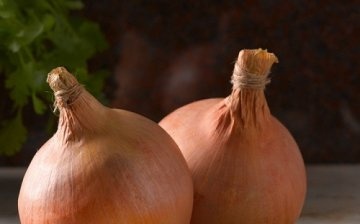Winter onions and their cultivation
It is good to grow winter onions because you harvest your first crop 1.5 months earlier than your neighbors, who planted it only in the spring. But, choosing this method, you should understand that there are a number of features.
First of all, you need to take into account the climatic characteristics of your region. If no snow cover is expected, then winter onions will be able to withstand temperatures up to a maximum of -15 degrees. If the snow layer is several centimeters, then you can be sure that the freezing of the onion is not scary for you.
Growing winter onions
Winter onions, which are planted in autumn, prefers fertile, well-moistened soil. In doing so, choose special varieties of onions and their hybrids. You also need to pay attention to what crops grew before that. For example, it is not recommended to grow winter onions in areas where potatoes, legumes, celery, parsley, and alfalfa were previously grown. This is due to the fact that there is a risk of infection of winter onions with nematodes.
The best predecessors of winter onions are cereals (with the exception of oats), beets, corn, rapeseed, peas, beans, lettuce, cucumber and mustard. Planting winter onions also has some peculiarities. So, in the fall, it will be necessary to apply 1/3 of the amount of nitrogen fertilizers to the ground - 60 kg / ha. The remaining 2/3 of the parts are applied in the spring in the same amount, but already at the beginning of the growing season and after 2-3 weeks, but not later than the third decade of April.
As you can see, planting and caring for winter onions is not as difficult as it seems at first glance.




I plant the first variety that is on the market, in my opinion, all the same, I plant it after the ground freezes a little. A month before planting, I dig it with manure, after planting I mulch with sawdust. There is snow, no, within reason.
I have never planted an onion before winter, but the one that grows in our greenery and which we never harvest never freezes in our region, even if there is no snow at all. I try not to apply mineral fertilizers, because they increase the acidity of the soil and feed the onions with compost.
Not only snow can save the onion from freezing, some cover the ground with special materials that do not allow the ground to freeze too much, but we prefer not to risk it.
For me, winter onions are the first spring greens that begin to break through within a couple of weeks after the snow melts. I have never tried to grow it for a turnip, only for a feather, because this is its charm. Accordingly, I am not wise with the varieties that are left (even small bulbs), I sow everything.